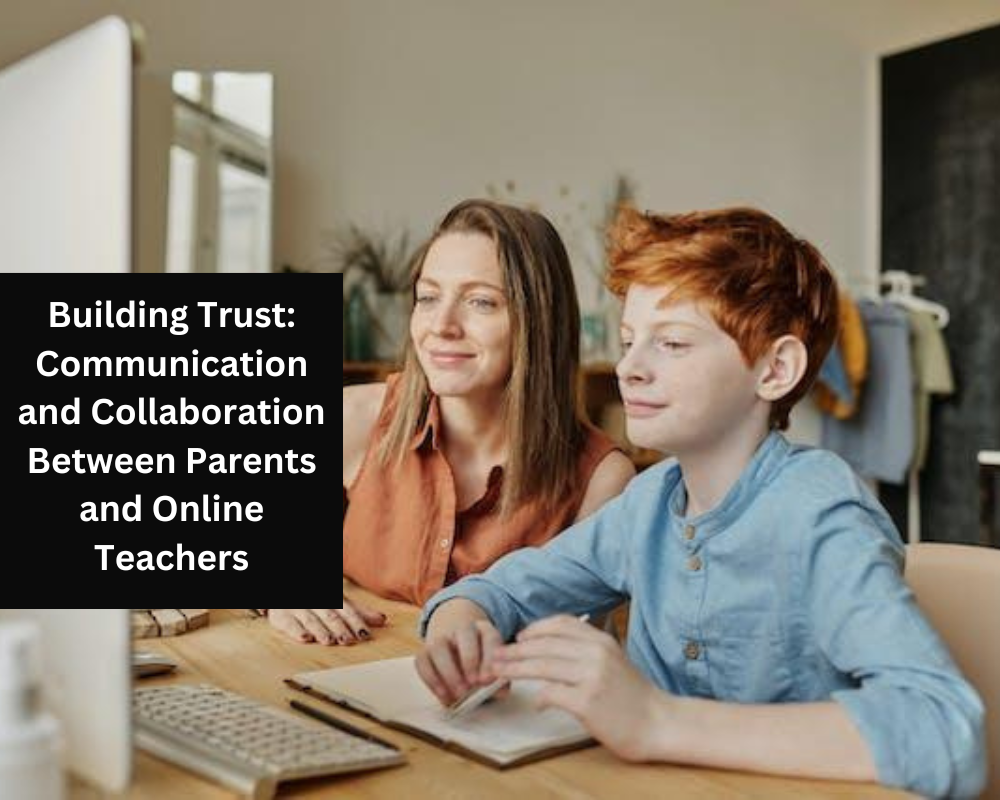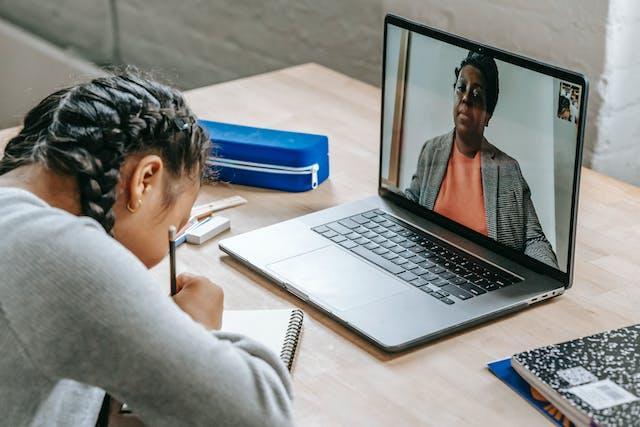
During a child’s online education, their parents and teachers should create an open channel of communication. A healthy pattern of collaboration and trust can be incredibly beneficial to the student. We’ve prepared a few ways that teachers and parents can find effective ways to work together for the child’s benefit.
Schedule a Video Call at the Beginning of the School Year
It is possible for confidence between educators and parents to develop from the very beginning. A video call is a constructive tool that allows everyone to be better aligned for what’s next. You can arrange this even before the school year starts.
The video call between parents and teachers should cover:
- The course curriculum
- The teaching style of the instructor
- Anything the teacher should know about the student
- The parent’s expectations of the teacher
- The instructor’s expectations of the parent
- How much homework will be given
- How work will be graded
- The class schedule
- What happens if the student misses school
- Penalties for late work
- Any other relevant topics for the specific situation
This type of information sharing and involvement will start the relationship on the right foot. It also allows both parents and teachers to be united in helping their students.
Discuss How the Student is Doing With Online Schooling

There are some students who thrive in online school platforms, and others who find it troubling for various reasons. When teachers and parents are on the same page about how their student is getting along academically, they can offer aid to them both together and individually.
For example, when teachers and parents meet virtually, parents can:
- Tell the teacher the specific challenges of the student
- Let the educator know what helps their child specifically
- Provide understanding about what’s going on
- Provide support for the teacher
With that in mind, teachers are able to help parents virtually by:
- Offering advice that comes from experience and education to the parent
- Coming up with lessons catered to the student
- Gaining an understanding of the student and their learning style at a deeper level
- Coming up with a learning plan with the parent
It is for these reasons that cooperation between parents and schools can aid all students in a way that’s most beneficial to them.
Be Straightforward About Classroom Activities and Events Through Email
There are times when a student forgets to relay classroom activities or events to their parents. Likewise, if a student’s personal life or events interfere with their education, it normally falls on the parent to explain what’s happening to the instructor.
Email is a quick and simple way for parents and teachers to regularly connect, especially with busy schedules. Through this method of exchanging information, they can be confident that they understand what’s going on.
This is especially true when the following topics are discussed through emails:
- Grades of the student
- Specifics about what is being taught at that time
- Classroom activities and events
- Events at home that intervene with education
- Schedule adjustments (if and when they are needed)
- Educational needs of the student
- Any questions or concerns of all parties involved
Emails reestablish assurance and trust between instructors and parents, and help each side to feel informed.
Remember Why Communication and Trust are Significant for a Student

It may sometimes feel demanding to maintain communication that is already established between parents and educators. However, remembering the reasons why it’s essential may make it easier. Listed below are some of those reasons.
It Allows the Student to Thrive With the Online Education Platform
A student’s education sets a foundation for the rest of their life. Trust and unification between their parents and instructors will make the process much smoother and more effective for the student. This is especially valuable in an online setting like Oxbridge Notes, as it can help them develop a love for learning rather than dreading it.
For students who have challenges with virtual school, when they have parents and teachers united on how to help them, it gives them an advantage. The scholar then has a higher chance of success.
Read: Time Management: The Unofficial Guide for Online Learning
Creates a Learning Foundation at School and Home
When teachers and parents work together, they form a team to support education for the student. Therefore, a scholar will not only learn in a school setting, but also in their home setting. This is done by using educational resources the instructor provides, doing homework with parents, or simply applying what a student learned at school in their home.
These lessons are motivation and influence that students can take with them into adulthood.
Technology has made it simple for parents and educators to stay in frequent contact. When this type of contact is maintained, trust is developed.
Parents and teachers can continually build this confidence by scheduling a video call at the beginning of the year to discuss expectations, and emailing continually about what’s important. Additionally, talking about how the student is doing with online school and remembering why it’s important to maintain correspondence are other ways for trust to increase. This will be helpful for all teachers, parents, and students.
Author’s Bio:
Tiffany Young is a freelance writer, content strategist, and former graduate assistant. She writes about the latest developments in teaching, public policy, standardized testing, and educational technology.
